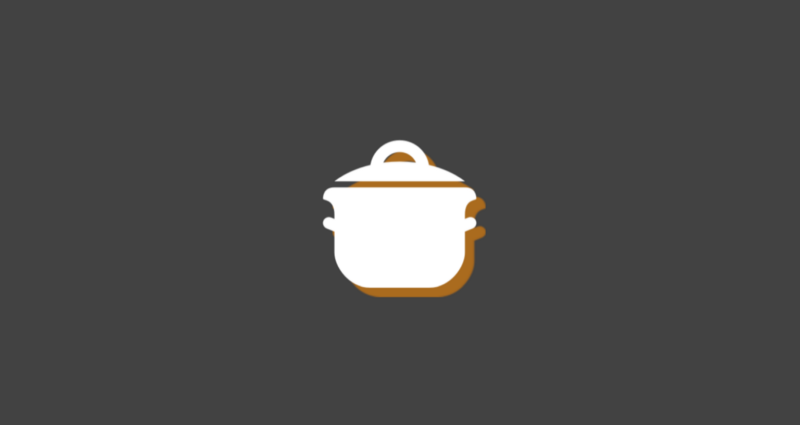It all begins sometime around Thanksgiving, the Great Sugarfest.
Pumpkin pie, bread pudding, homemade toffee, and sugar cookies begin calling out to you from dessert tables. They’re soon joined by hot cocoa, eggnog, and candy canes, followed by visions of sugar plums stomping in your head.

Don’t get us wrong: we adore these sweet treats every now and then. But between all of the Friendsgivings, Hanukkah celebrations, office Christmas parties, and hopping from one family gathering to the next, it’s real easy to quickly become inundated with more sugar than you know what to do with. And that takes a major toll on your health in a time when your immune system is already stressed and strained.
While you can’t very well turn down your great Aunt’s famous pecan pie, you can definitely load up on tasty, healthy food to keep your body energized and your immune system strong. That way you steer clear of the sugar coma altogether.
Savory > Sweet
Some of us naturally lean towards the savory side of life, but for everyone else, making dishes that are rich in flavor without all of the sugar can be just as tantalizing.
’Tis the season for root vegetables that have a natural sweetness when roasted. Swap out a pie for a savory galette that will garner just as many oohs and ahhs as any dessert, and you don’t even need a recipe for it. You can make a simple pie crust and then fill with whatever roasted or sauteed veggies your heart desires, topped off with an easy vegan ricotta cheese. Fold the edges of the dough over to cover about 2/3 of the filling, stick it in the oven until golden brown, and then feast.
Au Naturel
Our bodies need some amounts of sugar to stay energized, and the wonderful world of fruits and veggies offers a far more colorful, interesting selection than the candy aisle.

Fresh fruit hits the sweet spot without pumping you with all of the unnecessary artificial sweeteners and hydrogenated oils that packaged sweets and sugary drinks impart. Maybe try a not-so-common fruit like dates and figs for a special holiday treat. Serve fresh with whipped coconut milk and you have a simple, decadent dessert.
The great things about eating more whole fruit and less baked goods and packaged sweets is that we benefit from fruit’s antioxidants, vitamins, and dietary fiber. Notice that fruits don’t scream at you with “Fat-free!” “Only 15 calories!” from across the aisle. They just sit there, waiting patiently, without any wild claims or exaggerated marketing.
What’s So Bad About Sugar, Anyway?
Sugar, specifically refined white sugar and artificial sweeteners, can affecy your brain and the rest of your body. You can treat it similar to alcohol (as that’s how your brain can recognize it), and imbibe with caution.

Small amounts of artificial sweeteners are totally fine, but it sneaks into places where is doesn’t belong (like most all packaged food). And not all sugar is created equally — glucose, fructose, and sucrose are each used differently in our bodies.
- Glucose is a monosaccharide that enters your bloodstream through the carbohydrates you eat, and is the energy source your body loves for your muscle and brain power. It circulates in the bloodstream, causing the secretion of insulin which then facilitates the entry of glucose into your cells.
- Fructose comes from fruits, vegetables, and is the form of sugar found in soda and sugary drinks (think High Fructose Corn Syrup). It is only metabolized in your liver, and is more likely to produce fat than glucose. Fructose doesn’t cause you to produce insulin, nor does it require leptin which is a hormone that regulates how much energy you take in and expend.
- Sucrose comes from sugar cane and sugar beets, and is naturally occurring in fruits and veggies. When you eat sucrose, an enzyme in your body divides sucrose into either glucose or fructose.
- Lactose is a disaccharide sugar found in milk and dairy products. An enzyme in your small intestine called lactase breaks lactose down into simpler forms of sugar, galactose and glucose, so that it can be absorbed and enter into the bloodstream through the intestines. About 65% of the human population is unable to digest lactose due to low levels of lactase.
PSA: “Natural” products like agave nectar, honey, and maple syrup (while great substitutes for white sugar) are still sugar.
Soupppp, There It Is.
Okay, we’re partial to soup, but hear us out. During the colder months a steaming pot of soup can soothe like no other, and eating more cooked veggies means eating less of the other stuff.

If you’re worried about not having healthy options at the office party or Nana’s Christmas spread, having a soup before heading out provides the perfect nourishing foundation so you don’t over do it. Plus, if you’ve been busy cooking, it’s easy to forget to feed yourself — which means by the time you arrive at your gathering, you’re freakin famished and more likely to get stuffed.
We don’t like to think of sweets as being inherently “bad,” but here’s the deal: there’s only so much you can eat in a day, and if you focus on what you DO eat that’s healthy instead of what you CAN’T eat cause it’s bad news bears (gummy bears, to be exact), you’ll shift your thinking to a more positive relationship with food, sans all the guilt and regret.
Back to soup…
Soup is easy to make with versatile ingredients, and the formulation of fat, protein, fiber, and complex carbs nourishes and satisfies like none other. You can slow simmer it in a crock-pot while you’re at work and return home to a meal that’s hearty and nutritious. Don’t have time for cooking, or don’t want to hassle with chopping all of those veggies? No problem. That’s what we’re here for.
